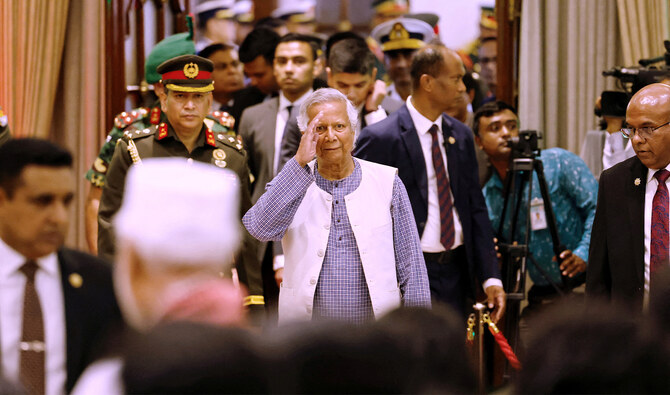By The Nexus Gazette.
19th August, 2024.
In his inaugural policy address as the interim leader of Bangladesh, Nobel laureate Muhammad Yunus has reaffirmed his government’s unwavering commitment to two of the nation’s most pressing concerns: the welfare of Rohingya refugees and the revitalization of Bangladesh’s garment industry.
Bangladesh currently shelters over one million Rohingya refugees who fled Myanmar in 2017 following a brutal military crackdown. These refugees live in dire conditions, facing numerous challenges, including limited access to basic necessities and uncertain futures. In his address, Yunus highlighted the ongoing humanitarian crisis, emphasizing the need for sustained international collaboration to ensure the safety, dignity, and eventual repatriation of these displaced individuals.
Yunus reiterated Bangladesh’s stance as a compassionate host nation, committed to providing refuge to those in need. However, he also stressed that the burden of responsibility should not fall solely on Bangladesh. “The international community must step up its efforts to resolve this crisis,” Yunus declared, urging global powers to support diplomatic solutions that would facilitate the safe and voluntary return of the Rohingya to their homeland.
The garment industry is the backbone of Bangladesh’s economy, contributing approximately 85% of the country’s annual exports. However, recent civil unrest, sparked by political turmoil, disrupted production and led international buyers to consider shifting orders to other countries. This disruption threatened the livelihoods of millions of workers and the stability of the national economy.
Yunus, addressing the issue head-on, made it clear that his administration would take decisive action to restore confidence in Bangladesh’s garment sector. “We cannot allow our garment industry, a cornerstone of our economy, to falter,” Yunus stated. He pledged to stabilize the industry, ensuring that Bangladesh remains a key player in the global clothing supply chain. His administration plans to implement measures that will secure the industry’s future, including enhancing labor conditions and attracting foreign investment.

Beyond addressing immediate economic and humanitarian concerns, Yunus faces the monumental task of guiding Bangladesh through a period of democratic reform. Following the sudden departure of his predecessor, Sheikh Hasina, who ruled for 15 years, Yunus returned from Europe to lead a country in need of direction. His leadership comes on the heels of a student-led revolution that demanded an end to autocratic rule and a return to democratic governance.
Yunus has outlined his vision for democratic reforms, with plans to hold free and fair elections within a few months. His goals include rebuilding trust in the government, restoring institutional integrity, and fostering an environment where democracy can thrive. While the challenges are significant, Yunus’s legacy as a Nobel Peace Prize laureate and his pioneering work in microfinance provide him with a unique platform to lead Bangladesh during this critical juncture.
As Bangladesh navigates these turbulent times, Yunus’s commitment to the Rohingya refugees and the garment industry underscores the importance of balancing humanitarian concerns with economic stability. His administration’s efforts will be closely watched by both domestic and international observers, as the world looks to see how Bangladesh will manage these intertwined challenges.
Yunus’s address has set the tone for what could be a transformative period in Bangladesh’s history. His leadership will be pivotal in determining whether the country can emerge from its current crises stronger and more resilient.
Resources: